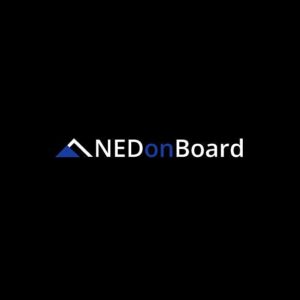In the wake of the global pandemic, many organisations have turned their minds to the thorny question of force majeure. In this blog post, Joanne Taylor, managing director at K2 Integrity, explores the meaning and effect of force majeure in business relationships and the strategies that can be employed by boards to successfully navigate force majeure challenges.
What is force majeure?
Force majeure events are generally defined as acts, events, or circumstances beyond the control of any party—for instance, natural disasters, outbreaks of hostilities, acts of government, or epidemics. In a corporate context, force majeure refers to contractual clauses that alter the parties’ obligations and/or liabilities under a contract when an extraordinary event or circumstance beyond their control prevents any party from fulfilling those obligations. Under a force majeure clause, a party is entitled to cancel, suspend or extend the performance of its obligations without liability.
English law does not have a defined meaning or implied right of force majeure. Therefore, a contract must expressly include a force majeure provision in order for it to apply.
Force majeure clauses and COVID-19
During the COVID-19 pandemic, many businesses worldwide have struggled to meet their contractual obligations—as a result of supply chain interruptions, for example. However, some organisations have sought to invoke force majeure provisions simply to save costs or get out of unfavourable contracts, when in fact they are still able to meet their contractual obligations.
As the pandemic and the economy enter new phases, all organisations should institute regular reviews of their contracts with trading partners, vendors and customers in order to ensure they understand their rights and obligations within existing trading relations. The wording of force majeure clauses will vary, so their application should be considered on a contract-by-contract basis. There is a need to tread carefully and seek legal advice as appropriate, since mistakenly claiming force majeure can constitute a breach of contract.
Disputing a counterparty’s force majeure assertions
Where a counterparty asserts force majeure, the impact on an organisation can be significant—where there is a key supplier dependency, for instance. Organisations may wish to challenge the basis of this assertion, with a particular focus on establishing whether the event in question has truly made performance impossible and whether the effect is permanent or temporary.
At this point, a corporate investigator may be a valuable addition to the advisory team. In a dispute situation, an organisation may wish to engage investigators to gather intelligence and evidence to determine whether the representations made by the counterparty are accurate: Is the counterparty no longer supplying the product to any of its customers, for instance, or is it simply prioritising some customers over others? Or is the counterparty wrongfully (or dishonestly) triggering a force majeure clause, when performing its obligation would simply be more costly?
Future improvements
Looking forward, organisations will need to ensure that when negotiating new contracts, or renegotiating existing ones, the issue of force majeure and business interruption insurance is carefully considered and negotiated by a strong and competent legal team—and if clauses are invoked, that the business heads have a clear understanding of the potential impact.
For more information, please contact Joanne Taylor, managing director at K2 Integrity. Joanne is a qualified solicitor and joined the firm from Deutsche Bank, where she served as managing director, global deputy head of anti-fraud, bribery, and corruption.
To view K2 Integrity insights, please visit k2integrity.com.
This post is sponsored by K2 Integrity.
Want to know more?
- New to the NED role? Watch our acclaimed webinar, How to secure your first non-executive director role.
- Already committed to becoming a non-exec and want a roadmap to achieve this objective? Sign up to the NED Accelerator Programme by NEDonBoard. We applied years of accumulated knowledge and worked with experienced NEDs and chairs to deliver practical and actionable content to support you in transitioning with confidence and success.
- Already on a board? Join NEDonBoard, the Institute of Board Members as a member or contact [email protected] for training opportunities aligned with your objectives and aspirations.
- You may also sign-up to the weekly newsletter (non-member) to receive relevant updates and read about NED roles on offer.




